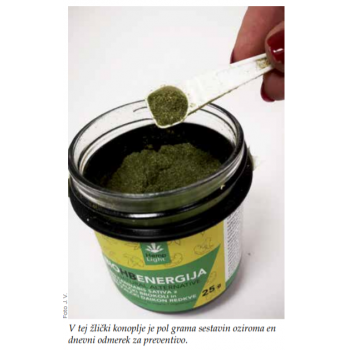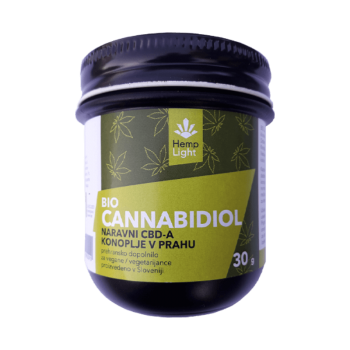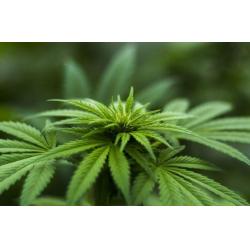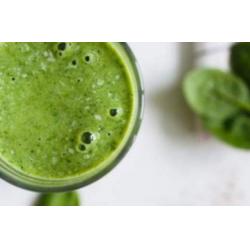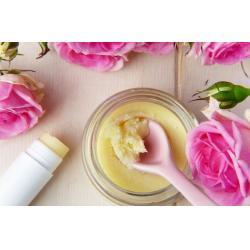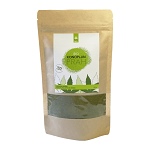The use of lyophilised cannabis is closest to the use of fresh cannabis
Fresh hemp is an excellent prevention, as it is very good for preventing inflammation that promotes health problems in the body.
I recommend eating fresh hemp just like any other healthy food. However, since cannabis cannot be bought on the market like other herbs or vegetables, I recommend using lyophilised cannabis- which is the closest approach to using fresh cannabis. With the lyophilisation process, we keep all those ingredients that are in fresh hemp," says the asist. Željko Perdi, M.D., internal medicine specialist, gastroenterologist and pulmonologist. We talked to him about the everyday use of cannabis for the prevention and use of cannabis in medicine.
Our interlocutor is also the expert director of the CIIM Centre for Internal and Intervention Medicine plus in Maribor and associate of the International Institute of Cannabinoids ICANNA. In the field of comprehensive treatment with cannabinoids, he is one of the leading physicians of Slovenia and is increasingly well established in the international arena.
When and why did you, the doctor, attract you to the cannabinoids?
I first met cannabinoids at random about seven years ago, when I met Nicolas Wagener from Luxembourg, who came to an international meeting on cannabis in Lendava. For more than two decades, he has been researching and producing oil extracts from medical cannabis. I didn't know anything about cannabis at the time. Wagener gave me an oil extract, but I gave it in good faith to a friend who had nothing left to lose. His wife was very ill, in the terminal stage of breast cancer with metastases all over her body and in a very poor general condition. She had frequent infections, her general condition was bad. After a few weeks, he told me that it was visibly superior, the infections no longer recur.
has a better appetite, sleeps better and has much more power. Her body was returning to her body. These were interesting things for me that I couldn't explain, so I started exploring which active ingredients were cannabis. And that's how I got to the cannabinoids.
You're the only doctor here who advises people on cannabinoids?
The only one probably isn't, but not among the few. That is why the International Institute of Cannabinoids I C A N N A has gathered experts from various disciplines, from microbiologists, chemists, doctors, lawyers, economists to agronomists, to add something to the expert level on our part to spread knowledge about the usefulness of cannabis as a plant and the use of cannabinoids in medicine. Twenty-first-century medicine is terribly powerful. Unfortunately, he doesn't have chronic diseases. We are very good at dealing with emergency, acute conditions and injuries or mechanical issues, such as changing the hip or knee, opening clogged veins in a heart attack or in strokes, and it is broken in chronic diseases. Chronically, it means life. We can only control the disease, to a certain extent we influence its course, and occasionally we almost completely stop its progression, but we do not know how to cure it. This gap then implicases a wide variety of methods, including the use of cannabinoids.
What does science say?
I've never seen the miracles of using cannabinoids, but I've had quite a few good results. Congresses dedicated to cannabis and cannabinoids are also increasingly scientific. There is a lot of work to be done in this area, so it's already moving from an alternative form to a pure scientific form. There are, however, many political factors that influence the notabinoids' not yet asserting themselves in medicine. ICANNA's purpose is therefore also to get cannabinoids to where they belong, controlled in the hands of professionals.
You recommend use of fresh cannabis?
use of fresh cannabis?
I recommend both: both fresh hemp, in which cannabinoids are in acid form, as decarboxylated cannabinoids. For every day, I would recommend fresh hemp to anyone in the form of juices, smuti. We put it in the smuta, like spinach, grind and drink. I have fresh hemp as part of the diet, not for dietary supplement . The simplest is to pick up the pots of fresh hemp on the field, grind them or put them in the freezer and take them every morning and put them in the smuti. But for most, this is out of reach because we can't buy cannabis at the market like other herbs or vegetables. Keeping active ingredients from fresh hemp is not easy. Lyophilisation is a process by which the process of decarboxylation of acid forms into more active forms of cannabinoids is retained, while retaining most of the other active ingredients such as terpenes and flavonoids. I therefore recommend the use of lyophilised cannabis, which is the closest to the use of fresh cannabis.
What about the decarboxylated forms of cannabinoids?
I recommend them as supplements to diet and medication. That's a very important difference. Today we know more than 100 different cannabinoids, and hemp contains them only in acidic form. In fresh hemp there is no psychoactive THC, it is THCA, an acidic or acidic form. Only if THCA heats up, you get THC, which is psychoactive. It is in such a low concentration in the field or in a fresh plant that it is completely irrelevant. However, if you start drying cannabis, light it up or heat it, and in a process called decarboxylation, THCA turns into THC. If you want to know the concentration of cannabinoids, this should be put in for analysis. What happens is that some people are taking something and they don't even know what they're enjoying. The body's response to THC is very personal, and everyone responds differently to it. Someone's laughing, the other is crying, someone's quiet, someone gets paranoid... That's why I really don't want to give someone who's sick. Among the most numerous receptors in our brain are CB1 and they are bound by THC, which can cause memory disorders, concentrations, balance disorders, mood, appetite... These are concrete side effects for me and I don't want to cause it to anyone. So never take anything that doesn't have a declaration. THC also has beneficial effects, but should be prescribed with caution, in combination with other cannabinoids. In medicine, we always start with low doses, which are experiential. So far, in practice, we are mostly talking about two cannabinoids, CBD and THC, and there is a growing number of talk about CBG and other cannabinoids such as CBC, CBN and THCV, which are present in extracts only in a small amount, but also have a number of beneficial effects on our bodies.
What do you, as a doctor, prescribe in your clinic of the CIIM Centre for Internal and Intervention Medicine plus?
I prescribe decarboxylated cannabinoid THC and CBD , on a white recipe. I also advise some products with a wide spectrum of cannabinoids mostly in the form of oil solutions, which are then purchased by patients in a self-paid pharmacy or ordered. Cannabinoid treatment requires individual treatment, as the effect may be different for everyone. The introduction of cannabinoids into the treatment of various diseases should therefore be thoughtful and targeted, similar to treatment with other medicinal products. From the outset, the risk of side effects should be assessed and patients should be informed. Assess possible drug interactions, anticipate changes that will occur and start with an experientially optimal dose and optimal combination of cannabinoids. The rule still applies: start at a low dose, gradually and slowly change doses and not always increase the dose. We often see that even low doses are extremely effective. The products used in this application must have the stated composition of cannabinoids and terpenes and other tests demonstrating their quality (microbiological analysis, analysis of heavy metal content, pesticides...). Therefore, treatment with preparations obtained on the "black" market is unchecked and often very dangerous.
Why should we advise lyophilised products on a daily day?
Our body fights various inflammations every day, as well as acids. We have extremely effective mechanisms in the body to compensate for these deviations, and the basis is to keep our cells, which are the basis of the whole body, in balance, homeostasis. Cells constantly give signals, what is not good, what needs to be repaired. The main purpose of the endocannabinoid system in our body is precisely to maintain homeostasis, which is why this system is activated when the homeostasis collapses. If the condition of the collapsed homeostasis persists, damage to tissues, organs and whole organ systems occurs. Diseases and symptoms appear. Symptoms therefore only arise once the damage to our tissues has progressed. At that time, we mainly use decarboxylated cannabinoids, which act through the endocannabinoid receptors, and try to control the disease. Before that, prevention is important. Fresh hemp is excellent for prevention. It works antioxidant, anti-inflammatory, to a certain extent antitumor, increases the amount of energy in the body, strengthens overall vitality, practically is an incentive to the whole body. The body uses energy all the time to adapt. And if we give him something that doesn't have to adapt, he's got more energy... Yes, we can save a lot of energy if we don't burden the body with unnecessary ballast. We call it a healthy lifestyle. By avoiding harmful spoils, exercising regularly and of course having a balanced diet and healthy sexuality, we keep our body in the best shape. We do terrible harm to our diet.
What kind of nutrition do you advocate?
We can poison ourselves with food, treat ourselves, or be neutral. The basic goal of eating is to generate energy for a normal life. And we eat, eat for flavors. Let's try to find our lifestyle and way of eating. There is no other way of testing what suits us best; this cannot be prescribed.
What about the diet you're advocating from a doctor's point of view?
I'm as much for nutrients that are quickly digestible and energy-rich. The protein should be at least fifty per cent of plant origin. I'm not advocating a vegetarian diet, nor that we eat red meat every day. I'm in the gold center. Personally, I believe that in every thing we approach, it has to be very balanced, not in the extreme. For daily survival, when we work normally, we need nutrients that make us vital, not when we go to brunch and then we're tired that we can't work. Let's eat with our heads. People are really getting a trash can today, throwing everything at ourselves without any criteria, just for that taste in our mouths for a few seconds.
If we go back to fresh and lyophilised cannabis – what are its benefits?
I see fresh hemp as very good for preventing inflammatory processes in the body. Inflammation is the one that promotes health problems in the body, initially at the micro-level, but if we do not limit inflammation, it develops further. That's why I absolutely recommend cannabis for prevention. I'm advocating that you have to think about health when you're healthy. When we start to feel the symptoms, the damage to the body is already great. Diseases often start happening without feeling them. And when we feel them, this damage to the organic system is already quite advanced, and the fire is a much bigger problem. I therefore believe that from the twenty-fifth, 30 years on, more care should be taken care of itself and the necessary substances.
When do you advise cannabidiol CBD ?
CBD I advise 25 milligrams to enjoy three months a year and especially when we are stressed. CBD it works through the endocannabinoid system in the body, which is activated when we are under negative stress. This is our protective system and we are encouraging it further. We don't know a lot about the functioning of this system yet, but science is progressing on a daily basis. However, I would like to point out that I advise cannabis at the same time as a balanced diet and a proper lifestyle. If you just pull one of this out of context, there's not going to be any real health.
Source: Mysteries, March 2021, Tatjana Svete
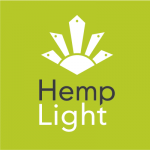
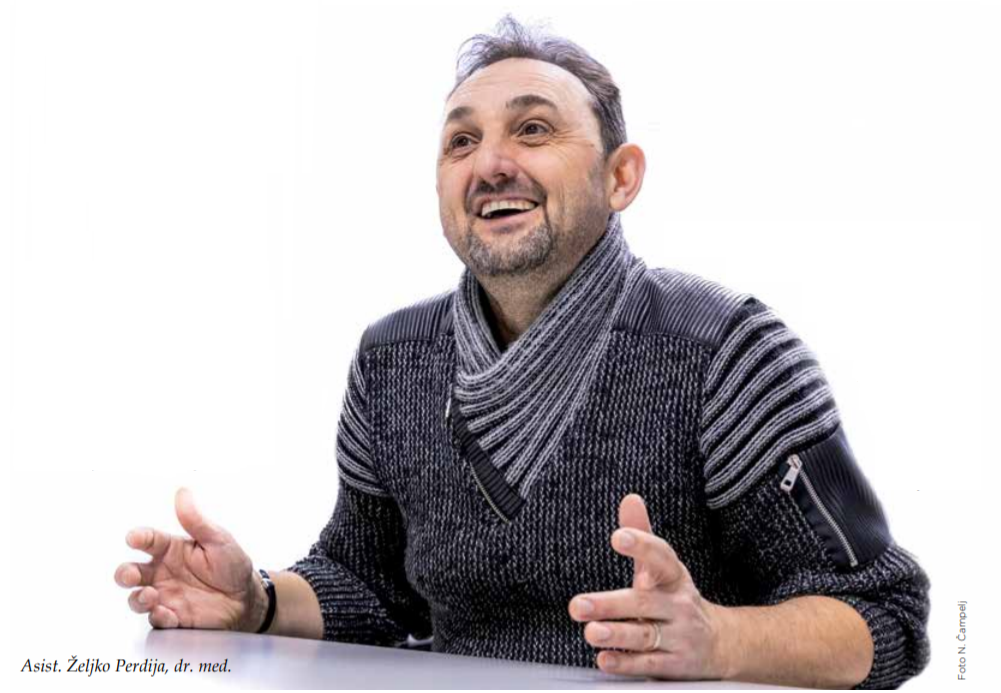
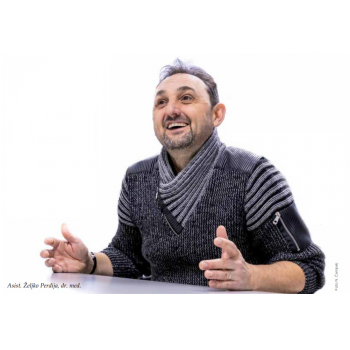
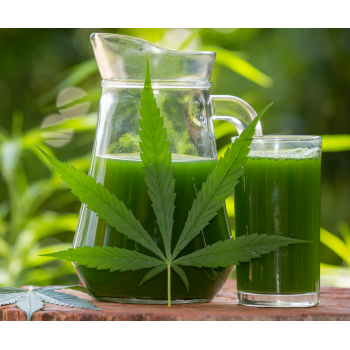 use of fresh cannabis?
use of fresh cannabis?